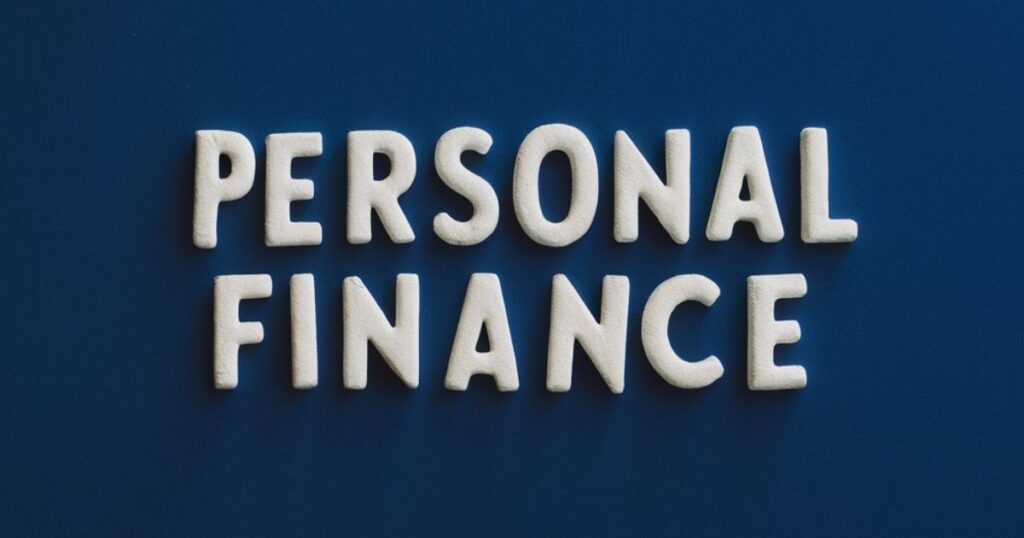Introduction to Financial Foundations
Laying a strong foundation is crucial for any endeavor that demands long-term success, and personal finance is no exception. Just as a sturdy base is essential for a towering skyscraper, getting the basics right from the start is paramount for achieving financial stability and growth. Among the various pillars that support a robust financial life, one fundamental practice stands out as the bedrock upon which all other money management strategies are built: budgeting.
The Core of Personal Finance
Budgeting is the absolute core of personal finance. It’s the central practice that allows you to take control of your money, track your income and expenses, and make informed decisions about how to allocate your resources. Without a budget, your financial life is akin to a ship without a rudder, drifting aimlessly and vulnerable to unexpected storms.
The power of budgeting lies in its ability to provide clarity and accountability. By creating a budget, you gain a clear understanding of where your money is coming from and where it’s going, enabling you to identify areas of overspending and make adjustments accordingly. A study by Gallup found that households that maintain a budget are more likely to have higher net worth and less overall debt.
Defining the First Pillar
At its core, a budget is a detailed plan that outlines your income and expenses over a specific period, typically a month. It consists of the following key components:
- Income: This includes all sources of money coming in, such as your salary, freelance earnings, or investment returns.
- Fixed Expenses: These are expenses that remain relatively constant each month, such as rent or mortgage payments, utility bills, and loan repayments.
- Variable Expenses: These are expenses that fluctuate from month to month, such as groceries, gasoline, and entertainment costs.
- Discretionary Spending: This category encompasses non-essential expenses that are often flexible, such as dining out, hobbies, or travel.
Contrary to popular belief, budgets are not restrictive shackles that limit your financial freedom. Instead, they are empowering tools that help you make conscious choices about how to allocate your resources in alignment with your goals and values.
Understanding Financial Fundamentals

Before diving into the nitty-gritty of budgeting, it’s essential to understand some fundamental financial concepts. These terms and their mastery will serve as the building blocks for creating an effective budget:
- Income: This refers to the money you receive from various sources, such as employment, investments, or side hustles.
- Fixed Expenses: These are expenses that remain constant each month, such as rent, mortgage payments, and recurring bills.
- Variable Expenses: These are expenses that fluctuate from month to month, such as groceries, utilities, and transportation costs.
- Discretionary Spending: This category includes non-essential expenses that are often flexible, such as entertainment, dining out, and hobbies.
- Savings: This refers to the portion of your income that you set aside for future goals, emergencies, or investments.
- Debt: This encompasses any outstanding balances you owe, such as credit card balances, student loans, or personal loans.
Grasping these fundamental concepts will not only aid in creating a solid budget but also provide a solid foundation for making informed financial decisions throughout your life.
Recommended Post: Warships With Three Banks Of Rowers: A Comprehensive Guide
Mastering Money Basics
Now that you understand the fundamentals, let’s dive into the step-by-step process of creating an effective personal budget:
- Track Your Income: Start by listing all sources of income, including your salary, freelance earnings, investment returns, or any other sources of money coming in.
- Categorize Your Expenses: Divide your expenses into fixed, variable, and discretionary categories. This will help you identify areas where you can cut back if needed.
- Use a Budgeting Tool or App: Consider using a budgeting tool or app to streamline the process. Popular options include Mint, YNAB (You Need a Budget), and Excel spreadsheets.
- Set Realistic Goals: Determine your financial goals, such as saving for an emergency fund, paying off debt, or investing for retirement. Allocate portions of your budget to these goals.
- Review and Adjust: Regularly review your budget and make adjustments as needed. Life is unpredictable, and your budget should adapt to changes in your income or expenses.
Here’s an example of what a monthly budget might look like:
| Category | Amount |
|---|---|
| Income | |
| Salary | $4,000 |
| Fixed Expenses | |
| Rent | $1,200 |
| Car Payment | $300 |
| Student Loan Payment | $200 |
| Variable Expenses | |
| Groceries | $400 |
| Utilities | $150 |
| Gasoline | $120 |
| Discretionary Spending | |
| Dining Out | $200 |
| Entertainment | $100 |
| Savings | |
| Emergency Fund | $300 |
| Retirement Contribution | $500 |
| Total Expenses | $3,470 |
| Net Income (Income – Expenses) | $530 |
Mastering the art of budgeting is an ongoing process, and it may take some trial and error to find the right approach for your unique circumstances. However, the effort is well worth it, as it lays the groundwork for achieving long-term financial success.
The Starting Line: First Financial Steps
While budgeting is the critical first foundation of personal finance, it’s important to recognize that it’s merely the starting line of a broader financial journey. A well-crafted budget serves as the roadmap that guides you toward achieving other important financial goals, such as:
- Building an emergency fund
- Paying off high-interest debt
- Saving for significant purchases (e.g., a home or car)
- Investing for retirement and other long-term goals
Without a budget in place, it becomes incredibly challenging to allocate your resources effectively towards these objectives. Budgeting provides the clarity and discipline necessary to identify surplus income that can be directed towards these essential financial milestones.
“A budget is telling your money where to go instead of wondering where it went.” – John C. Maxwell
Principles of Financial Stability
One of the core principles of personal finance is achieving financial stability, and budgeting is the cornerstone of this pursuit. By closely monitoring your income and expenses through a budget, you can ensure that you’re living within your means and avoiding the trap of overspending.
Financial stability is characterized by:
- Having a well-funded emergency fund to weather unexpected expenses
- Maintaining a manageable level of debt
- Consistently saving for future goals and retirement
Without the discipline and accountability provided by a budget, it’s all too easy to fall into a cycle of living paycheck-to-paycheck and accumulating debt, which can undermine your long-term financial well-being.
Building Blocks of Wealth
While budgeting is often associated with managing day-to-day expenses and achieving financial stability, it also serves as the critical building block for accumulating wealth over time. By identifying surplus income through your budget, you can allocate funds towards investment vehicles such as:
- Retirement accounts (e.g., 401(k)s, IRAs)
- Taxable brokerage accounts
- Real estate investments
- Entrepreneurial ventures
Consistent budgeting and disciplined saving and investing can lead to the powerful compounding of your wealth over decades. Consider this example:
Sarah starts investing $500 per month (identified from her budget) into a diversified portfolio at age 25, earning an average annual return of 7%. By age 65, her investment would grow to a staggering $1,445,000.
On the other hand, John waits until age 35 to start investing the same $500 per month at the same 7% return. By age 65, his investment would only amount to $520,000 – less than half of Sarah’s total.
This stark contrast highlights the pivotal role that budgeting plays in facilitating long-term wealth accumulation. By mastering this fundamental practice early on, you can harness the power of compound interest and set yourself up for a financially secure future.
The Genesis of Financial Security

Achieving true financial security is the ultimate goal for many individuals and families. It’s a state in which you have the resources and stability to weather any financial storms that may arise, from job loss to medical emergencies, without compromising your standard of living or long-term goals.
Financial security encompasses several key elements:
- A robust emergency fund (typically 3-6 months’ worth of living expenses)
- Little to no high-interest debt
- Adequate insurance coverage (health, life, disability, etc.)
- Consistent savings and investments for retirement and other goals
While attaining financial security is a multi-faceted endeavor, the genesis point – the critical first step – is establishing a solid budgeting foundation. Without the clarity and discipline provided by a well-structured budget, it becomes nearly impossible to achieve the other pillars of financial security.
For example, how can you build an adequate emergency fund without knowing exactly how much surplus income you have available to allocate towards savings each month? Similarly, how can you tackle high-interest debt without a clear understanding of your cash flow and expenses?
Budgeting is the cornerstone that enables you to make informed decisions about allocating your resources towards these essential financial security goals. It’s the starting point that sets you on the path towards a future free from the stress and uncertainty of financial instability.
Essential Elements: First Finance Focus
As we’ve explored throughout this comprehensive guide, budgeting is the essential first focus of personal finance – the fundamental foundation upon which all other money management practices are built. Without a solid budgeting system in place, your financial house is built on shifting sands, vulnerable to the slightest disruption.
Mastering the art of budgeting provides numerous invaluable benefits:
- Clarity and Control: A well-crafted budget gives you a clear picture of your income, expenses, and financial position, enabling you to take control of your money rather than letting it control you.
- Goal Achievement: By identifying surplus income through budgeting, you can allocate funds towards achieving important financial goals, such as saving for emergencies, paying off debt, and investing for the future.
- Spending Awareness: Budgeting heightens your awareness of where your money is going, empowering you to make conscious choices about discretionary spending and curb unnecessary expenses.
- Financial Stability: Consistently living within your means through budgeting promotes financial stability, reducing the risk of accumulating burdensome debt or depleting your savings.
- Peace of Mind: Having a solid budgeting system in place provides a sense of financial security and peace of mind, knowing that you’re in control of your money and on track towards your goals.
While the journey towards financial success is a marathon, not a sprint, budgeting is the critical first step that sets you on the right path. It’s the foundation upon which you can build a secure and prosperous financial future for yourself and your loved ones.
So, if you haven’t already done so, take the time to create a comprehensive personal budget today. Treat it not as a restrictive burden, but as an empowering tool that will unlock a world of financial possibilities. Embrace budgeting as the first foundation in your personal finance journey, and watch as your financial house grows stronger and more resilient with each passing year.
Conclusion
To sum it up, establishing an emergency fund forms the bedrock of personal finance, providing a crucial first step toward financial stability and security. By prioritizing savings and creating a financial safety net, individuals can protect themselves from unexpected expenses and avoid falling into the trap of debt.
This initial foundation sets the stage for future financial success, empowering individuals to pursue their long-term goals with confidence and peace of mind. Ultimately, mastering the first foundation in personal finance lays the groundwork for a solid financial future, ensuring resilience in the face of life’s uncertainties.

Howdy, editor at FinanceEon.com, brings over a decade of financial journalism experience. He ensures accuracy and insightful analysis, guiding a team on market trends and investment strategies.







